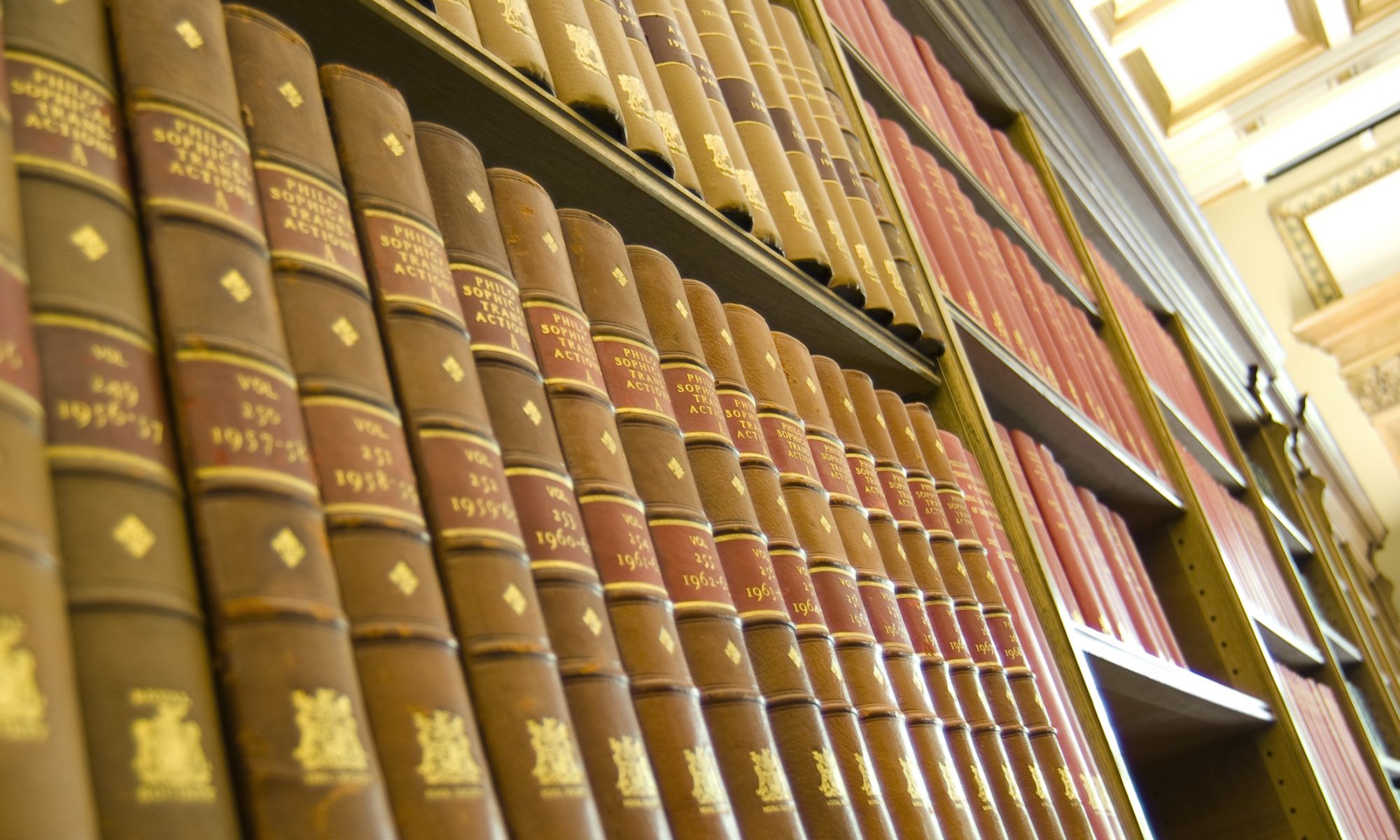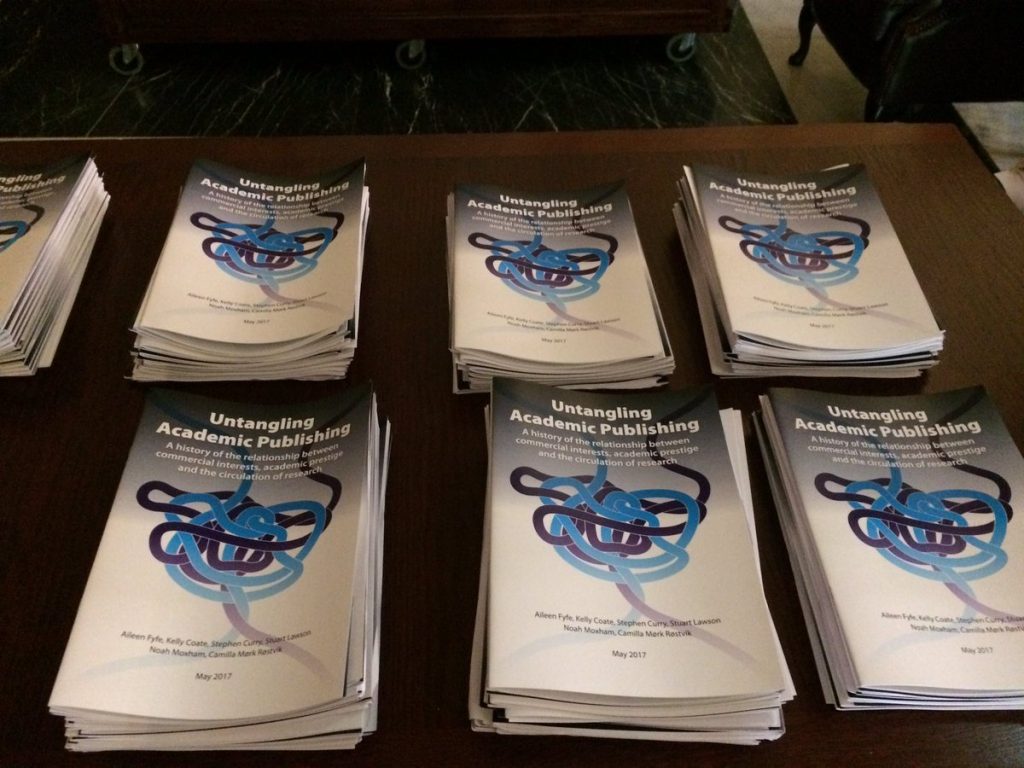Untangling Academic Publishing was launched on May 25, 2017 (see previous post for a report of the launch).We are using this page to collate the responses and reactions. Please add your comments using the ‘Leave a reply’ function (above), or link to your own blog (etc).
John Elmes, “Academics ‘should not sign over research copyright to publishers“, Times Higher Education (25 May)
Ernesto Priego’s blog (25 May): “A significant contribution of this report is its historical perspective… I hope that everyone interested in scholarly publishing reads the complete report, but I would like to copy and paste below a selection of the recommendations that I believe we should all work harder to communicate (and, of course, actively embrace) within our own professional and disciplinary networks”.
Kat Steiner’s blog (30 May): “The report itself is a really good read, and even as someone with a fair amount of history of science knowledge, and a librarianship degree, there was lots I didn’t know. It’s not too long either.”
A view from the other side of the Atlantic, as Shawn Martin wonders if the history of US academia makes a difference to US attitudes to OA in his ‘History of Scholarly Communication’ blog (31 May)
A non-profit provider of publishing services (Veruscript) finds lots to like in our recommendations… (1 June)
Uta Frith: “Thoughtful analysis of past & future of science publishing. We don’t have to buy the for profit model” (Twitter 2 June)
Anne Nolan reflected on the launch event (2 June) and said ‘My takeaway from the evening was that publishers do have a valuable role to play, but need to keep an eye on what scholars and their institutions value.’
The British Library Science Team summarised our report nicely (8 June), and drew attention to ‘diamond open access’ – something that really should be more talked about! (On diamond OA, see Fuchs & Sandoval, 2013)
Thanks to Beth Hall, for letting us know that Danny Kingsley (Cambridge, @dannykay68) was recommending our report to the delegates at the CONUL conference of librarians in Ireland (30-31 May)!
Jo VanEvery (12 June) expresses disappointment ‘that it downplays the political shifts that happen over the same period, which are only visible by the traces they leave in higher education policy.’ But she also urges scholars to think about ‘what all this might me for you as a scholarly writer submitting your work for publication’ and to ‘Reflect on your own practices and examine the values embedded in them and their alignment with your own scholarly values.’
Alastair Horne, writing for BookBrunch (20 June), noted that it has been a busy month for reports on academic publishing – with the ‘Academic Book of the Future’ project reporting shortly after UntanglingAcademic Publishing was launched. He (rightly!) notes that Untangling ‘may make more concerning reading for publishers’.
Herman Rucic brought our comments about copyright to the attention of those campaigning for copyright reform, at CopyBuzz.com (22 June). He noted our recommendation that academics should retain copyright, and not transfer it to profit-oriented third-parties, but curiously didn’t comment on the UK-SCL proposal.


